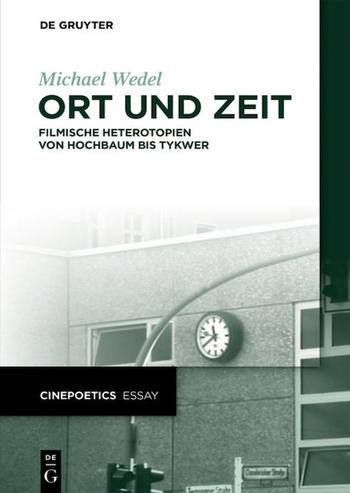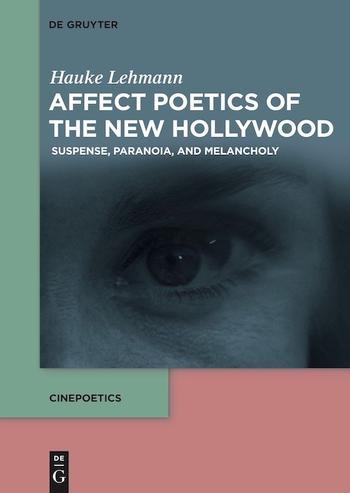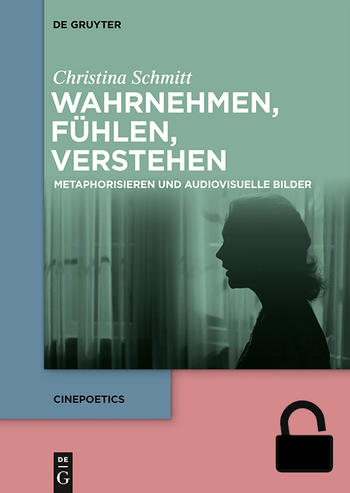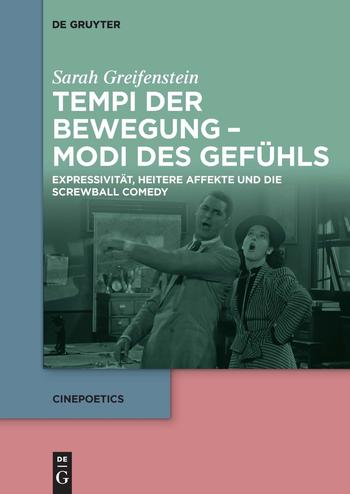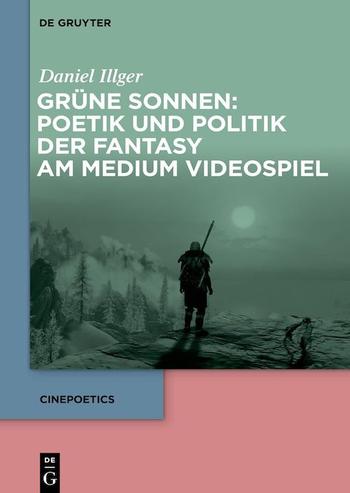Latest Cinepoetics Publications
Ort und Zeit
Affect Poetics of the New Hollywood
Wahrnehmen, fühlen, verstehen
Tempi der Bewegung - Modi des Gefühls
Grüne Sonnen: Poetik und Politik der Fantasy am Medium Videospiel
News from Nov 02, 2020
Despite the challenges to our day-to-day research activity at Cinepoetics, we already look back at a favourable year for our book series. While we report one new publication in our English series and three new entries in the German series, 2020 also marks the starting point for Cinepoetics Essay. This third book series with our publishing house De Gruyter ventures into poetic logics of audiovisual images in a concise manner, while maintaining a personal yet aesthetic and culture-theoretical perspective. Just as our German book series, Cinepoetics Essay is available not only in print but digitally via Open Access.
With Ort und Zeit, Michael Wedel observes the political and societal horizons of heterotopical concepts of space in German cinema between 1930 and 1990: Hamburg in Werner Hochbaum’s Ein Mädchen geht an Land, East-Berlin in Günther Reisch’s Ein Lord am Alexanderplatz, Munich in Wim Wender’s early works, the passage from New York via Berlin to Athens and Santorini in Rudolf Thome’s Die Sonnengöttin, and reunited Berlin in Tom Tykwer’s Lola rennt.
Early this year, we published Affect Poetics of the New Hollywood, John Lattimer’s English translation of Hauke Lehmann’s dissertation of the same name. In this study, Lehmann works out three modes of affective address of viewers – suspense, paranoia, and melancholy – and uses these as a groundwork for a re-evaluation of this important period in American cinema: film history as a history and interplay of affects.
This year’s first entry into the German book series attends to metaphor, one of our most important research foci. Christina Schmitt’s Wahrnehmen, fühlen, verstehen unfolds a transdisciplinary perspective on the intersection of pragmatic linguistic metaphor research and a film scholarly approach towards audiovisual media as movement-images. Metaphorising may thus be understood as an activity by viewers that takes part in arranging figurations of movement of audiovisual images.
Sarah Greifenstein’s book Tempi der Bewegung - Modi des Gefühls similarly focuses on a temporal arrangement of different modes of affectivity that are part of a film viewer’s experience. Her study sheds new light on basic elements of Screwball Comedies: interactions of altercation and anger may be perceived as an elegant dance of a moving couple. Buoyant enjoyment of viewers is not linked exclusively to narrative actions anymore but to aesthetic-expressive orchestrations, timing, and embodied meanings.
Our latest release in the German book series is Daniel Illger’s study Grüne Sonnen: Poetik und Politik der Fantasy am Medium Videospiel. Here, he develops a film analytical perspective on the relatively young field of video game research. In opposition with established attributions to the fantasy genre – as being reactionary and aesthetically obtuse –, Illger works out transmedia poetics that render possible a political assessment of this genre. His poetological analyses of artistically outstanding games like Dark Souls, Skyrim, or Hellblade focus on a genuine aesthetic thinking with audiovisual images.
